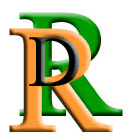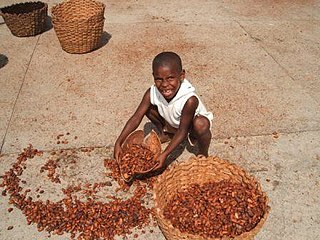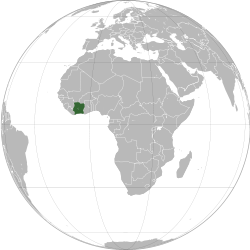Human arrival in Ivory Coast has been dated to the Upper Paleolithic period, or at the minimum, the Neolithic period based on weapon and tool fragments, specifically polished shale axes and remnants of cooking and fishing. The earliest known inhabitants of Côte d'Ivoire left traces scattered throughout the territory. Historians believe these people were all either displaced or absorbed by the ancestors of the present inhabitants. Peoples who arrived before the 16th century include the Ehotilé (Aboisso), Kotrowou (Fresco), Zéhiri, Ega, and Diès (Divo).

Ivory Coast, also known as Côte d'Ivoire and officially the Republic of Côte d'Ivoire, is a country on the southern coast of West Africa. Its capital city of Yamoussoukro is located in the centre of the country, while its largest city and economic centre is the port city of Abidjan. It borders Guinea to the northwest, Liberia to the west, Mali to the northwest, Burkina Faso to the northeast, Ghana to the east, and the Gulf of Guinea to the south. With 30.9 million inhabitants in 2023, Ivory Coast is the third-most populous country in West Africa. Its official language is French, and indigenous languages are also widely used, including Bété, Baoulé, Dioula, Dan, Anyin, and Cebaara Senufo. In total, there are around 78 different languages spoken in Ivory Coast. The country has a religiously diverse population, including numerous followers of Islam, Christianity, and traditional faiths like Animism.

Koudou Laurent Gbagbo is an Ivorian politician who was the president of Côte d'Ivoire from 2000 until his arrest in April 2011. A historian, Gbagbo was imprisoned in the early 1970s and again in the early 1990s, and he lived in exile in France during much of the 1980s as a result of his union activism. Gbagbo founded the Ivorian Popular Front (FPI) in 1982 and ran unsuccessfully for president against Félix Houphouët-Boigny at the start of multi-party politics in 1990. He won a seat in the National Assembly of Côte d'Ivoire in 1990.

The Rally of the Republicans is a liberal party in Ivory Coast. The party is the country's governing party; the party's leader, Alassane Ouattara, is the current President of Ivory Coast.
The First Ivorian Civil War was a civil conflict in the Ivory Coast that began with a military rebellion on 19 September 2002 and ended with a peace agreement on 4 March 2007. The conflict pitted the government of Ivorian President Laurent Gbagbo against a domestic insurgency led by the New Forces of Ivory Coast. Following the war, a second civil war (2010–2011) would begin over the results of the 2010 Ivorian presidential election.

Alassane Dramane Ouattara is an Ivorian politician who has been President of Ivory Coast since 2010. An economist by profession, he worked for the International Monetary Fund (IMF) and the Central Bank of West African States, and was the Prime Minister of Côte d'Ivoire from November 1990 to December 1993, appointed to that post by then-President Félix Houphouët-Boigny. Ouattara became the President of the Rally of the Republicans (RDR), an Ivorian political party, in 1999.

Child labour is a recurring issue in cocoa production. Cote d’Ivoire and Ghana, together produce nearly 60% of the world's cocoa each year. During the 2018/19 cocoa-growing season, research commissioned by the U.S. Department of Labor was conducted by NORC at the University of Chicago in these two countries and found that 1.48 million children are engaged in hazardous work on cocoa farms including working with sharp tools and agricultural chemicals and carrying heavy loads. That number of children is significant, representing 43 percent of all children living in agricultural households in cocoa growing areas. During the same period cocoa production in Cote d’Ivoire and Ghana increased 62 percent while the prevalence of child labour in cocoa production among all agricultural households increased 14 percentage points. Attention on this subject has focused on West Africa, which collectively supplies 69% of the world's cocoa, and Côte d'Ivoire, supplying 35%, in particular. The 2016 Global Estimates of Child Labour indicate that one-fifth of all African children are involved in child labour. Nine percent of African children are in hazardous work. It is estimated that more than 1.8 million children in West Africa are involved in growing cocoa. A 2013–14 survey commissioned by the Department of Labor and conducted by Tulane University found that an estimated 1.4 million children aged 5 years old to 11 years old worked in agriculture in cocoa-growing areas, while approximately 800,000 of them were engaged in hazardous work, including working with sharp tools and agricultural chemicals and carrying heavy loads. According to the NORC study, methodological differences between the 2018/9 survey and earlier ones, together with errors in the administration of the 2013/4 survey have made it challenging to document changes in the number of children engaged in child labour over the past five years.

Guillaume Kigbafori Soro is an Ivorian politician who was the Prime Minister of Côte d'Ivoire from April 2007 to March 2012. Prior to his service as Prime Minister, Soro led the Patriotic Movement of Côte d'Ivoire, and later the New Forces as its Secretary-General. In March 2012, Soro became President of the National Assembly of Côte d'Ivoire. He stepped down from that position in February 2019, announcing in June 2019 that he is running to succeed President Alassane Ouattara.

Simone Ehivet Gbagbo is an Ivorian politician. She is the President of the Parliamentary Group of the Ivorian Popular Front (FPI) and is a Vice-President of the FPI. As the wife of Laurent Gbagbo, the President of Côte d'Ivoire from 2000 to 2011, she was also First Lady of Ivory Coast prior to their arrest by pro-Ouattara forces.

Presidential elections were held in Ivory Coast in 2010. The first round was held on 31 October, and a second round, in which President Laurent Gbagbo faced opposition leader Alassane Ouattara, was held on 28 November 2010. Originally scheduled to be held in 2005, the vote was delayed several times due to the Ivorian Civil War and difficulties involved in the organization and preparation of the elections. A peace agreement between the government and the former rebel New Forces was signed on 4 March 2007, and in late April 2009, it was announced that the elections would be held by 6 December 2009, and that the date would be announced shortly. On 15 May 2009, the date was announced to be 29 November 2009. On 11 November, the elections were postponed again due to delays in the electoral roll. It was announced on 3 December 2009 to be held in late February or early March 2010.
Prostitution in Burkina Faso is not specifically prohibited by the law, but soliciting and pimping are illegal. Burkinabe society only accepts sexual intercourse within marriage. In 2009, Voice of America reported that the number of prostitutes in Burkina Faso had increased as a result of the country's poverty. The increase in prostitution has given rise to fears of an increase in the number of Burkinabés infected with HIV and AIDS. UNAIDS estimate there to be 31,000 prostitutes in the country.

The 2010–11 Ivorian crisis was a political crisis in Ivory Coast which began after Laurent Gbagbo, the President of Ivory Coast since 2000, was proclaimed the winner of the Ivorian election of 2010, the first election in the country in 10 years. The opposition candidate, Alassane Ouattara, and a number of countries, organisations and leaders worldwide claimed Ouattara had won the election. After months of attempted negotiation and sporadic violence, the crisis entered a decisive stage as Ouattara's forces began a military offensive in which they quickly gained control of most of the country and besieged key targets in Abidjan, the country's largest city. At the time, international organizations reported numerous human rights violations, and the UN undertook its own military action with the stated objective to protect itself and civilians.

The Second Ivorian Civil War broke out in March 2011 when the crisis in Ivory Coast escalated into full-scale military conflict between forces loyal to Laurent Gbagbo, the President of Ivory Coast since 2000, and supporters of the internationally recognised president-elect Alassane Ouattara. After months of unsuccessful negotiations and sporadic violence between supporters of the two sides, the crisis entered a critical stage as Ouattara's forces seized control of most of the country with the help of the UN, with Gbagbo entrenched in Abidjan, the country's largest city. International organizations have reported numerous instances of human rights violations by both sides, in particular in the city of Duékoué where Ouattara's forces killed hundreds of people. Overall casualties of the war are estimated around 3000. The UN and French forces took military action, with the stated objective to protect their forces and civilians. France's forces arrested Gbagbo at his residence on 11 April 2011.

Dominique Claudine Ouattara is the current First Lady of Ivory Coast, married to President Alassane Ouattara.
Human trafficking in the Ivory Coast refers to the practice of forced labour and commercial sexual exploitation which uses Côte d'Ivoire a source, transit, and destination country for women and children who are trafficked for these purposes. Trafficking within the country's borders is more prevalent, with victims primarily trafficked from the north of the country to the more economically prosperous south. Boys from Ghana, Mali, and Burkina Faso are subjected to forced labour in the agricultural sector, including on cocoa, coffee, pineapple, and rubber plantations; boys from Ghana are forced to labour in the mining sector; boys from Togo are forced to work in construction; and boys from Benin are forced to work in carpentry and construction. Girls recruited from Ghana, Togo, and Benin to work as domestic servants and street vendors often are subjected to conditions of forced labour. Women and girls are also recruited from Ghana and Nigeria to work as waitresses in restaurants and bars and are subsequently subjected to forced prostitution. Trafficked children often face harsh treatment and extreme working conditions.
The following lists events that happened during 2011 in Ivory Coast.

Canada–Ivory Coast relations are the diplomatic relations between Canada and Ivory Coast. Both nations are members of the Organisation internationale de la Francophonie.
Ivory Coast is a sub-Saharan nation in West Africa. It is a representative presidential democracy where rights are protected in the constitution, international law, and common law. As a member of the African Commission on Human and Peoples' Rights, it is a party to the African Charter on Human and Peoples' Rights and a signatory to major international human-rights agreements. In 2011, the Second Ivorian Civil War saw increases in violence and human-rights abuses. Although progress has been made towards reconciliation, the trial of former first lady Simone Gbagbo suggests that the root causes have not been addressed; no one has been convicted of crimes against humanity. According to a 2018 Human Rights Watch report, "Ongoing indiscipline by members of the security services and violent army mutinies demonstrated the precariousness of the country’s newfound stability."
Events in the year 2020 in Ivory Coast.
This period in the history of Ivory Coast was affected by the end of the 33-year reign of Félix Houphouët-Boigny in 1993, as well as demographic change which had seen the Muslim population rise from 6% in 1922 to 38.6% in 1998, including a majority in the north of the country.




















